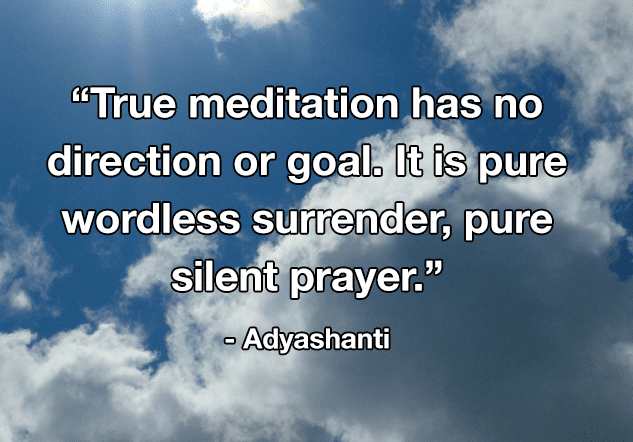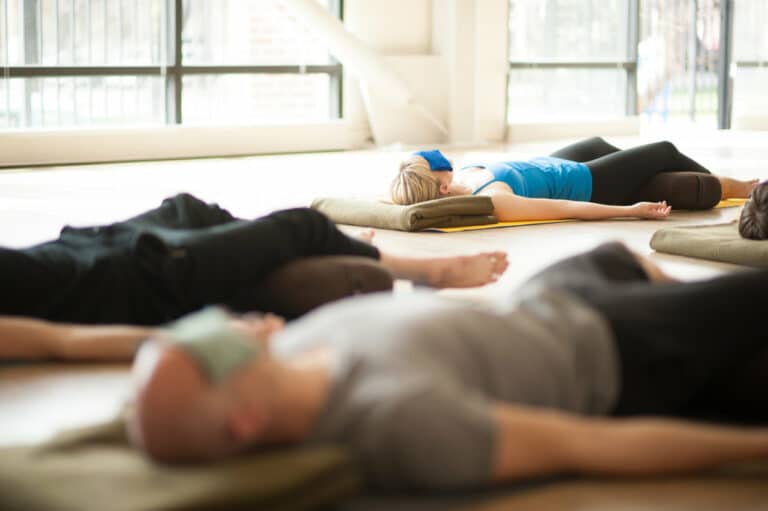This article is Part 2 of our guide to setting expectations from your meditation practice. Click here to read Part 1: Getting Started with Meditation: What To Expect.
We’ve already talked about clarifying your motivation and setting expectations for yourself in terms of your commitment and focus. In this post, we’ll pick up where we left off, and talk about how to set meditation goals that can set you up for success.
What Are Good Meditation Goals?

Goals are an important part of any activity you’re going to do, especially if you plan on making it a long term hobby and habit. They will give you a sense of direction, motivation, and purpose that goes beyond the initial reasons behind why you wanted to get started.
So, how do you set goals for meditation?
There are two points to consider. The first is that your goal aligns with your motivation, as we discussed in the previous post. The second is that you can set a goal without developing an attachment to that goal.
This second point is tricky for most of us, especially given the achievement-oriented environment most of us have been exposed to throughout our lives.
To help you release attachment, you might consider thinking of your goals not as objectives you must achieve, but rather milestones along your path. Unlike most activities, where you set deadlines and project tasks, your meditation goals should give room for your practice to evolve naturally.
This means that you set intentions for your practice, but not hard and fast rules. As you set an intention, you give yourself the flexibility to experience the desired result, without the pressure of needing to “get it done.”
If you need help establishing what these goals are, consider working with a coach, or take our introductory course.

For starters, some early milestones on your path can be:
- Feeling a natural state of bliss for the first time,
- Learning to become more fully aware of your thoughts, both on and off the mat,
- Gaining control over your emotional responses,
- Seeing love in others through compassion,
- Feeling your natural peace more consistently.
Any of these can be good goals or guidelines, but again, the key point here is for you to develop your goals for yourself, in accordance with your motivation behind why you want to meditate.
What Results Should You Expect From A Daily Meditation Practice?

As we talk about in our introductory course, one of the most immediate results from your meditation practice is that you’ll begin to feel incredible, most of the time.
When done correctly, meditation helps you to release built up negativity that you hold. By releasing this excess energy, you can begin to feel your natural state of joy that is always with you. You can begin to glimpse this state almost immediately after beginning a meditation practice, though for some people it can take several weeks in order to feel they’ve experienced this inner state of bliss.
Once you’ve felt this energy, the next result is for you to experience it more consistently, and to learn how to tap into this joy at any time throughout your day. To do this, cultivate the habit of stepping back to breathe as you move through the course of your day, or work with any other short breath exercise that allows you to regain your sense of awareness and peace.
These initial results will start to emerge within a few days or a few weeks of beginning a daily practice. You’ll start to notice that your focus improves, you begin to worry less, and you’ll feel calmer over the course of normal life.
Over the long term, these positive impacts can turn into other, more profound health benefits, such as a reduced risk for neurological, coronary, and intestinal diseases, among others. More importantly, you’ll develop a profound sense of awareness and bliss that will give your life more vitality, higher purpose, and more joy.



